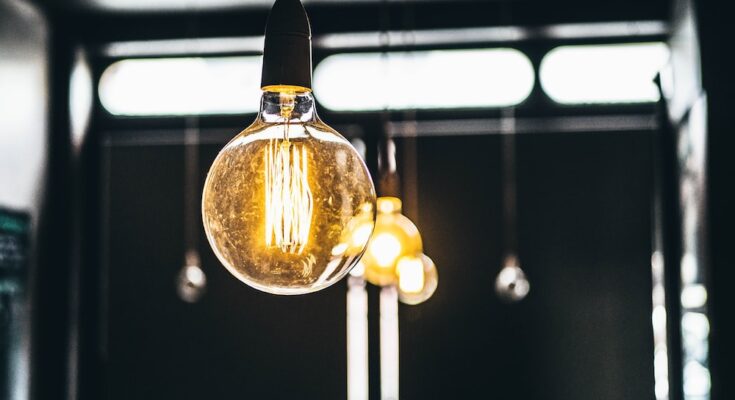Saving Money On Your Electricity and Water Bills
Your budget can be significantly impacted by reducing your utility costs. One of your major monthly expenses is probably your utility bills. Saving money is possible both the short- and long-term by doing a variety of actions.
It’s crucial to adjust your energy settings, minimize energy waste, and upgrade your equipment if you want to save the maximum money on your electricity costs. Even while many of these strategies may appear very insignificant, they can substantially enhance savings over time.
Adjusting thermostat for saving on bills
Image via Unsplash.com
About half of your home’s utility bills may be related to heating and cooling. In the summer, keep the thermostat set higher; in the winter, lower.
A programmable thermostat is another option for saving money. To prevent heating or cooling an empty space when no one is home, you can adjust your thermostat closer to the outside temperature.
Consider keeping your thermostat set between 55 and 64°F (12.7 and 17.8°C) during the winter. In the summer, a temperature range of 72–74°F (22.2–23.3°C) is probably ideal. In order to prevent frozen pipes in the winter and peeling paint or wallpaper in the summer, make sure the temperature is not set too high or too low.
Plumbing fixtures with low water flow
Your water bill may increase due to water waste from plumbing. To reduce the quantity of water you use, consider switching to a shower head with less water flow and a low-flow toilet.
1.5 liters of water are released per minute by low flow shower heads. Regular shower heads, on the other hand, can release up to 4.5 gallons of water per minute.
Low-flow shower heads use less water, but you should still have enough water pressure to keep yourself clean. If the pressure is insufficient, take into account purchasing a low flow handheld nozzle.
Federal guidelines currently state that toilets can use no more than 1.6 gallons per flush as opposed to the 3 to 6 gallons that older toilets used to.
Drying clothes without electricity for saving on bills
Image via Unsplash.com
The heating of the water used to wash your clothes consumes 90% of the energy used by your washing machine. Instead of using hot water to wash your clothes, try using cold water to do so. In addition, think about hanging your laundry to dry rather than using the dryer. Let the sun do the drying by erecting a clothesline outside.
Avoid doing little loads of laundry, just like with dishes. While it’s important to avoid overloading the washer, always use a full load.
Appliance use while cooking
Consider whether you really need your oven before using it to cook. In some circumstances, cooking in a microwave or toaster oven may be more energy-efficient than doing it in an oven.
Almost anything can be cooked in a toaster oven. Use the toaster oven to bake or cook small items instead to conserve energy.
In the microwave, food can be baked more quickly, such as potatoes. Instead of overusing the oven, you can also reheat food in the microwave.
Luxurious utilities will not help in saving
Image via Unsplash.com
If you truly want to save money, cutting the cord on cable TV and landlines can be a wise choice. Although you might easy avoid paying these payments, they will eventually accumulate.
If you cease using cable TV, a digital antenna can be bought for relatively little money. With the help of digital antennas, local channels can be easily received. If you want new channels, think about using digital media to complement your broadcast channels.
If you have a cell phone, you might not need a house phone. Get rid of your home phone if you don’t use it much and make your mobile device your main phone.
Insulating your home for saving on bills
A lot of energy is lost due to leaks in the house. Even if you rent, there are several easy ways to block heating or cooling from leaving your property.
Utilise weatherstripping on your doors and windows. This will prevent any heating or cooling from escaping to the outside.
Additionally, outlets and light switches can be insulated. It might be especially sage to insulate them if they are on an exterior wall.
If you own your home, make sure the walls and ceiling have enough insulation. If your attic is unfinished, for instance, put insulation between and over the floor joists. You might also wish to insulate the rafters and access entrance.
Unplug what’s not in use
Image via Unsplash.com
Power strips can use a lot of electricity even when nothing is plugged in or running. If you aren’t utilising a power strip, unplug it or turn it off.
Power strips can also be turned off while not in use. However, they can still use some energy just by being plugged in.
You could also be able to save money using a smart power strip. Smart power strips cut off electricity to inactive devices and only charge the gadgets that are currently in use.
Turn off lights before leaving room for saving electricity
It’s best to just leave the lights on when someone is in the room even though they don’t use much electricity. Before you leave for the day, make sure all of the lights in your house are turned off.
Before you leave a room, make sure all the lights are off. It is useless to light a space that will remain dark for an extended period of time.
Putting the lights on a timer would also be a smart idea. You might want to turn on some lights in the evening if you plan to return home at night. Installing exterior lights that only turn on when someone approaches can also be a possibility.
Check energy waste
Image via Unsplash.com
You may dramatically lower your power bill by being conscious of energy waste. Energy-saving techniques used in construction can reduce your electricity expenditures.
Try using an energy monitoring system to pinpoint and keep track of the precise energy-consuming activities taking place in your home. You might also be given information by some systems about the times of day when consumption is at its peak.









